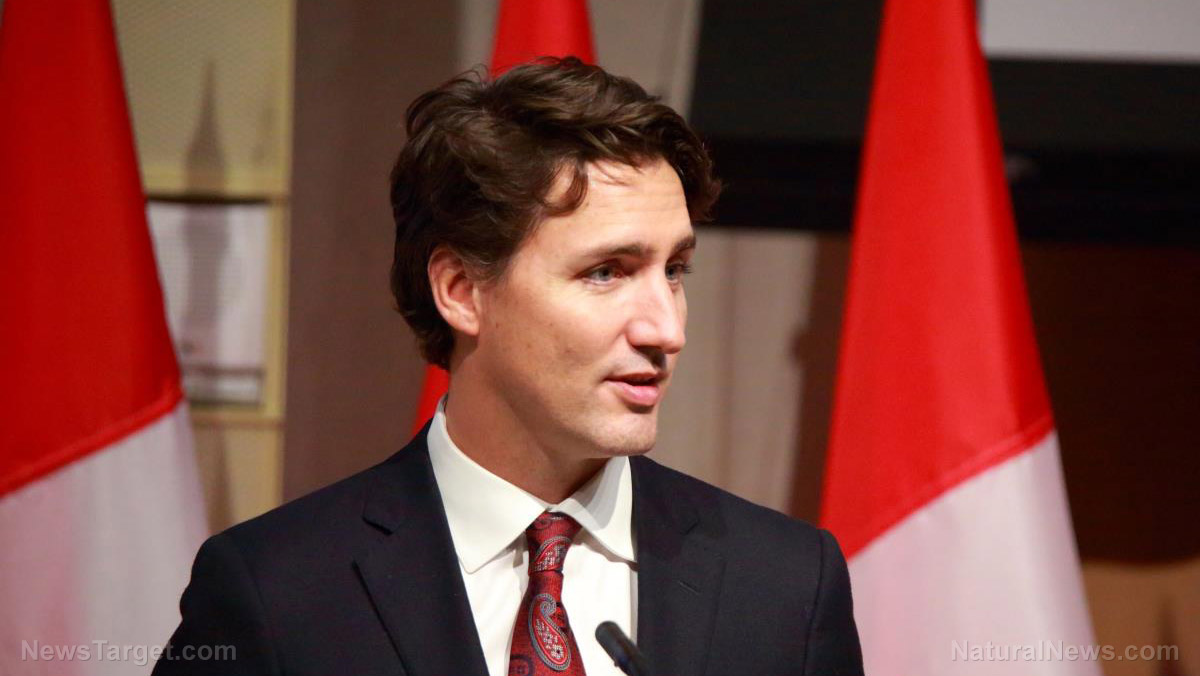 Parler
Parler Gab
Gab
The world has lost respect for the U.S. under Biden
The way that MbS cut off the 1945 core agreement between Saudi Arabia and the U.S. demonstrates that the latter has lost even more preeminence and respect at the hands of the Biden regime, which has set the country on a crash course to total failure. Biden likes to talk a big game, having recently promised "some consequences" for Saudi Arabia's actions, but it is doubtful that the Pedophile-in-Chief actually has a legitimate plan in place that will not demote our country even further into economic oblivion. "I'm not going to get into what I'd consider and what I have in mind," Biden went on to ramble. "But there will be – there will be consequences." Just prior to Biden's speech, National Security Council (NSC) spokesman John Kirby suggested that the U.S. "review the bilateral relationship with Saudi Arabia and take a look to see if that relationship is where it needs to be and that it is serving our national security interests ... in light of the recent decision by OPEC and Saudi Arabia's leadership [of it]." Despite all this, Saudi Arabia is forging ahead in its partnership with China, having indicated plans to continue "close communication and strengthen[ed] cooperation to address emerging risks and challenges," according to a joint communique from Saudi Energy Minister, Prince Abdulaziz bin Salman and Beijing's National Energy Administrator, Zhang Jianhua. Between January and August of this year, according to Chinese Customs data, 1.76 million barrels per day (bpd) of crude oil were shipped to China. This marks an increase in market share to 17.7 percent from 16.9 percent last year. Saudi Arabia is also said to be working on joint integrated refining and petrochemical complexes with China, as well as on plans to expand the use of nuclear energy. There is also word that Saudi Arabia is manufacturing its own ballistic missiles with the help of China, which only adds to U.S. fears that several key states in the Middle East are expanding their nuclear capabilities. More of the latest news coverage can be found at Collapse.news. Sources for this article include: OilPrice.com NaturalNews.comHalf of France’s nuclear power plants are offline as dark winter approaches
By Ethan Huff // Share
French glassmaker Duralex halts production amid energy crisis in Europe
By Mary Villareal // Share
Nebraska and South Dakota both declare fuel supply emergencies amid escalating energy crisis
By Ethan Huff // Share
Ukraine grapples with power interruptions as winter approaches
By Belle Carter // Share
Governments continue to obscure COVID-19 vaccine data amid rising concerns over excess deaths
By patricklewis // Share
Tech giant Microsoft backs EXTINCTION with its support of carbon capture programs
By ramontomeydw // Share
Germany to resume arms exports to Israel despite repeated ceasefire violations
By isabelle // Share










